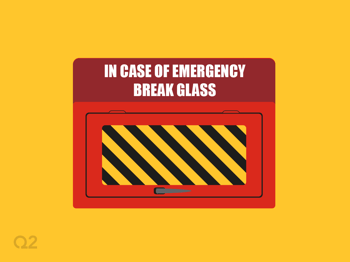Nearly 80 percent of Americans use smartphones, and the adoption of wearable technology has roughly doubled in the past two years. We use an average of 9 apps per day and 30 per month —and, while some of these apps are purely for entertainment purposes, we're also using mobile devices to stay more engaged and productive. We're always connected —and getting more so all the time.
If you doubt your daily reliance on technology, try leaving the house without your phone tomorrow morning. Being cut off is more than just a minor annoyance —for most of us, it feels deeply uncomfortable. Not only does disconnection limit our ability to communicate, but it hurts our productivity. We've deeply integrated technology and connectivity into our routines —into our way of thinking and working. Some might argue that we've given up a degree of independence to technology, but I think there's an even stronger case to be made for the positive influence of technology in our daily lives.
Track biometrics for better health outcomes, monitor your home for security, or even fine-tune your power usage from your phone for increased energy efficiency —the list goes on and on. We can do so much with the swipe of a finger or with a quick word to Siri or Alexa; we're more efficient and more tuned-in to the world around us.
And, we haven't even talked about finances yet.
Account balances are now a quick login away, and making and receiving payments is as simple as thumbing through an app. This might not seem like a big deal to some of you, but some of us remember when the cash you had on hand Friday evening was all you had until banks reopened Monday morning. ATMs —which feel like antiquated technology now —changed that, and were only the beginning.
Technology lets us track and manage our finances on the fly. From a consumer making a quick person-to-person payment through an app, to a small business owner being able to make immediate adjustments to payroll to accommodate last-minute needs, to a manager at a fortune 500 company approving wire payments from his phone in a meeting-transactions are getting easier to make from everywhere. This drives productivity, and makes our economy more flexible and responsive.
But even more than driving efficiency, digital banking technology —and, arguably, all well-engineered technology —has quality-of-life benefits. Consumers can fit purchases into their busy days, a small business owner's stress over being able to properly pay employees is reduced, and a finance manager is no longer chained to a desk.
But, like all well-engineered technology, it only works if we use it —and there's plenty of tech out there growing outdated, and dragging users down with it. Make sure your technology —for digital banking and everything else —reduces friction, saves time, and improves your quality of life. If it doesn't, it's time for an upgrade to help you live —and work-better.
To learn about some of the ways that Q2 is simplifying work, improving experiences, and delivering innovations in the financial services arena, reach out to us today.



